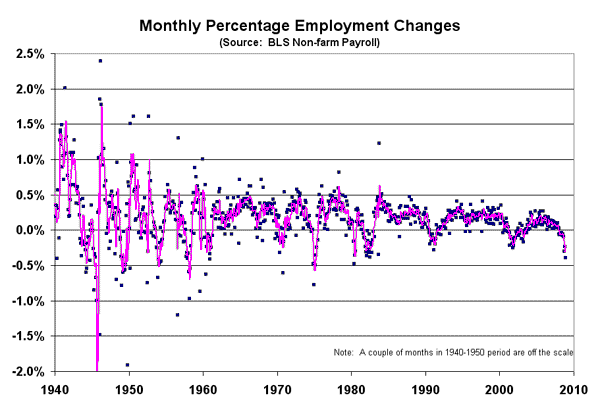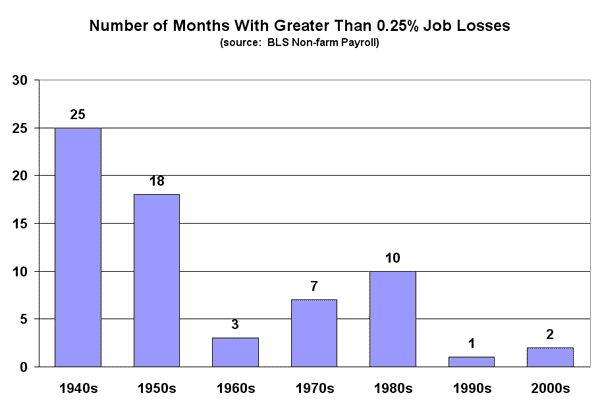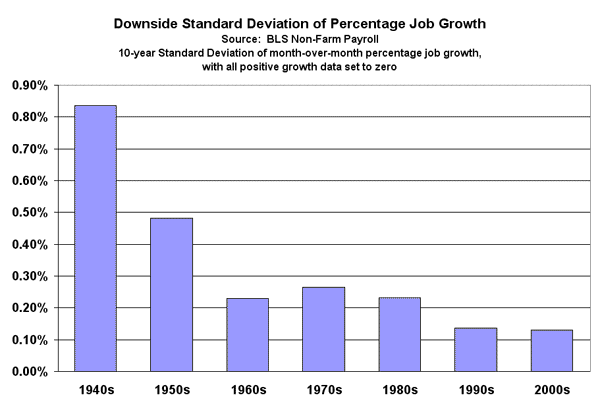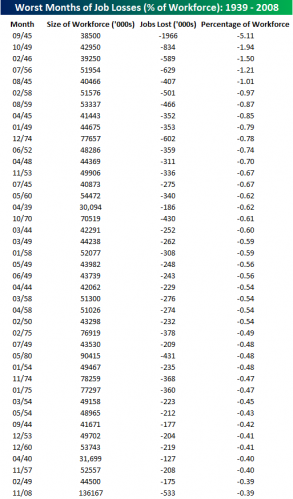Purposeful Obfuscation
What better way to inaugurate the new blog site than to rant about a Kevin Drum post? Drum posts this chart today from the NY Times showing a drop-off in the effective total tax rate (income+social security+other stuff) at very high income levels.

Well, no freaking duh. I suspect that this has been true practically forever. Why? Because this is NOT an income tax chart, it is a total tax chart. And as such, it includes social security and medicare taxes (collectively, with a couple of other minor things, called "payroll taxes". These taxes, about 8% of total income, are a flat tax with a cap around $100,000. This means that everyone with income under $100,000 pays 8% of all income. Someone at $5,500,000 (midpoint of the $1 million to $10 million band) pays only 8% of the first $100,000 or an effective rate of 0.146% of total income on payroll taxes. For someone in the top 400 taxpayers, the rate is close to zero. So you really have to add 8 percentage points or so to the higher rates to make them comparable ex-Social Security to rates for earners under $100,000.
Now, we can argue about the regressive structure of Social Security. But many on the left have opposed making it more progressive. They want Social Security to perceived as an insurance program, not a welfare/transfer program. To be insurance rather than welfare, effectively the same income that is used as the basis for benefits must also be the income basis for taxation. Income over $100,000 is not used to calculate benefits, so it is not taxed.
Here is one person on the left making this point in 2005:
...when his aides presented him with their initial Social Security proposals 70 years ago, FDR balked: "No dole," he said, "mustn't have a dole" "” because he knew instinctively that welfare programs are both fundamentally unpopular as well as corrosive to the human spirit. Conservatives understand this better than liberals, and know perfectly well that the best way to kill something is to convince the public that it's actually a welfare program.
But that's not what Social Security is. It's a modestly progressive social insurance program that's paid for by everyone and that benefits everyone. If it ever stops being that, if it ever stops being universal, it will eventually cease to exist. Don't let anyone fool you into thinking otherwise.
The person who wrote this was ... Kevin Drum. It is wildly disingenuous to look at income taxes and payroll taxes mixed together. It is even more so given Drum fully understands why payroll taxes are structured as they are.
Which is all not to say that there is not a really halide point in the article that people in the 100,000-200,000 range are getting hosed. But I would submit this hosing is more due to work by Drum's intellectual allies than the reverse. Phase-outs of deductions occur mostly in this range in the tax code, as does phase-in of the AMT. Both are leftish creations.
Also, there has clearly been something regressive in the tax code for the top 1% of earners over the last 10+ years. I am not sure what it is, because it certainly is not in the base rate schedule. My guess is that they just spend a hell of a lot more on managing their tax bill than you or I do. I am sure if I spent a million dollars on tax advice, I would cut my bill by 3 percentage points. Of course, that is a losing proposition for me, but a winning proposition for someone who makes $100 million a year. But hasn't this always been the case? And won't it always be the case, at least until we decide to radically simplify the tax code?
I wrote more about Drum's 2005 post here. I demonstrated how Social Security is promising me a negative rate of return on my money here. I showed despite Drum's protestations that Social Security is in fact mostly a transfer program here, if one defines a transfer as the difference in the return I get from SS and the return I would get on the private market.




